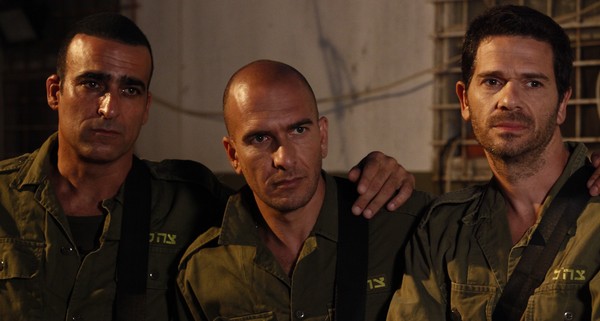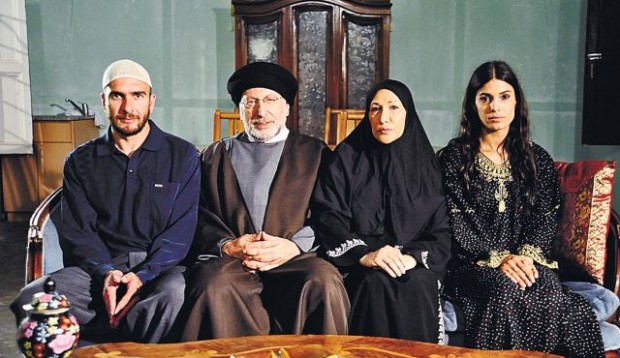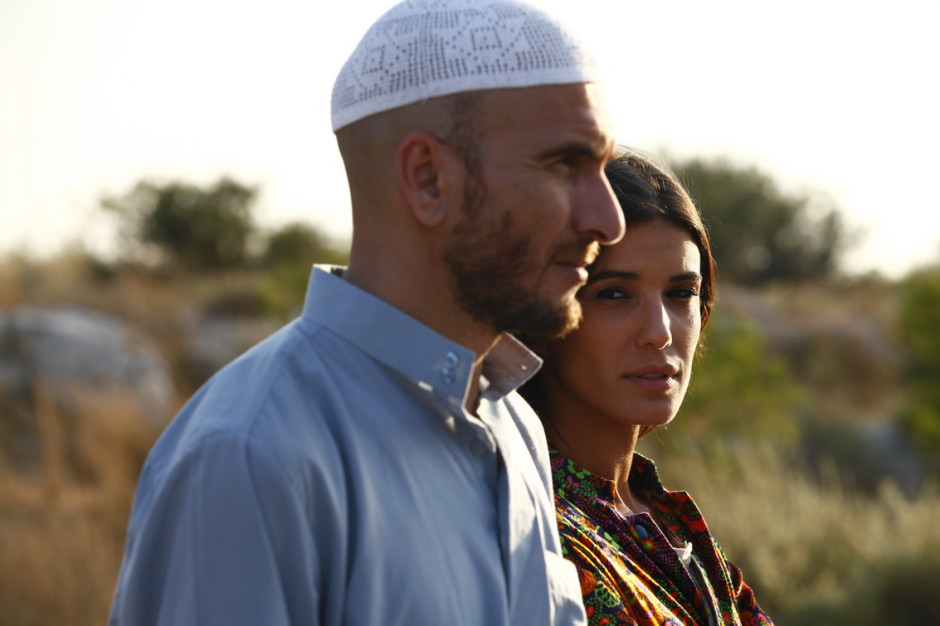If you liked the American television series Homeland, you’ll most probably like Prisoners of War, the Israeli version upon which it was based.
Gideon Raff’s Prisoners of War, Israel’s highest rated TV drama of all time, has won nine Israeli Academy of Film & Television Awards over two seasons. It’s popularity stems from a strong and plausible story line, an undercurrent of suspense, heart-pounding bouts of action and fine acting — an unbeatable combination.
Thanks to Video Services Corp., the complete second season, consisting of 14 one-hour episodes with English sub-titles, is now available on a four-disc DVD set.
Season one began as two Israeli army reservists who had been held captive in Syria for 17 years, Nimrod Klein (Yoram Toledano) and Uri Zach (Ishai Golan), were reunited with their families in an emotional reunion in Frankfurt, Germany. The remains of the third POW, Amiel Ben Horin, were returned in a coffin, much to the consternation of his sister, Yael (Adi Ezroni).
As viewers quickly discovered, neither Nimrod nor Uri were able to adapt to freedom in Israel. Both were tormented by flashbacks and nightmares and couldn’t get a decent night’s sleep.
Nurit (Milli Avital), Uri’s wife, has remarried, having given up hope of ever seeing him again. Uri, however, still loves Nurit and wants her back.

Talia (Yael Abecassis), Nimrod’s wife, treats him condescendingly and considers him a burden, while his two grown children relate to him like a stranger. Yael, meanwhile, has hallucinatory conversations with Amiel (Assi Cohen)
Haim Cohen (Gal Zaid), the army psychiatrist who’s debriefs Nimrod and Uri, is convinced they’re not telling the whole truth about their captivity, and orders a security agent to tail Uri. Unwittingly, Uri and Nimrod validate Haim’s suspicion.
Season two starts with a terrorist incident cum-flashback in a school in the northern Israeli town of Metulla as Abdullah (Yousef Sweid), a Palestinian released from an Israeli prison recently, kills a teacher and a boy’s father.
Much to the surprise and shock of viewers, Amiel is alive, having changed his name to Yusuf, converted to Islam and joined a Palestinian terrorist organization in Lebanon. Yusuf, claiming to have been “reborn” in prison, has married an imam’s daughter. The imam in question heads the anti-Israel organization to which Abdullah belongs.
Back in Israel, Nimrod, his life in shambles, has left Talia. Uri and Nurit have become a couple again, but trouble looms on the horizon.
The Israeli government, having decided to bring back Amiel/Yusuf, hatches a scheme to retrieve him. Ynon (Jonathan Uziel), a resourceful soldier who happens to be dating Yael, is assigned to the mission.

In the last three episodes, parts of which are quite suspenseful, the convoluted plot to repatriate Amiel unfolds against the tense backdrop of intrigue, gunfire, torture. As these events unfurl, Nimrod and Uri make decisions that may affect their lives profoundly.
I enjoyed Prisoners of War because it deals realistically with the Arab-Israeli conflict and human emotions. It’s at once compelling and entertaining, reason enough to be captivated by it.

